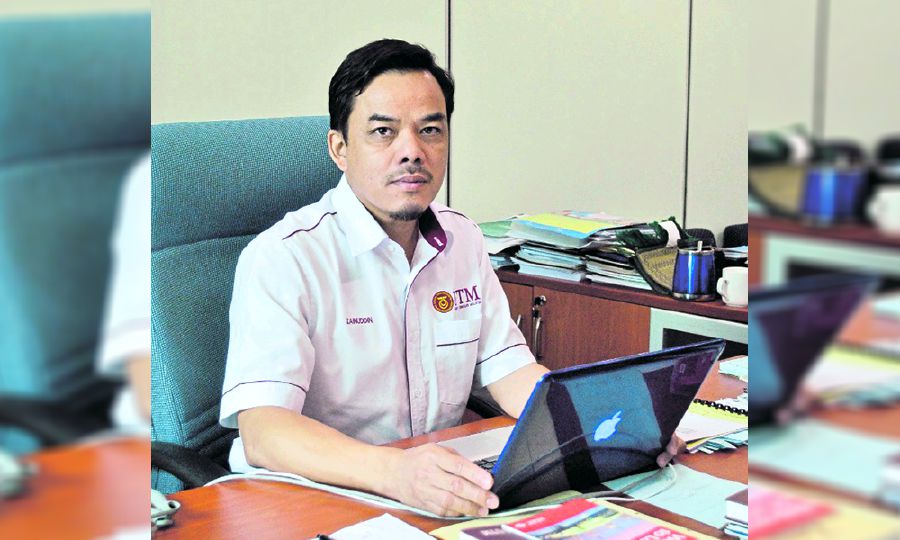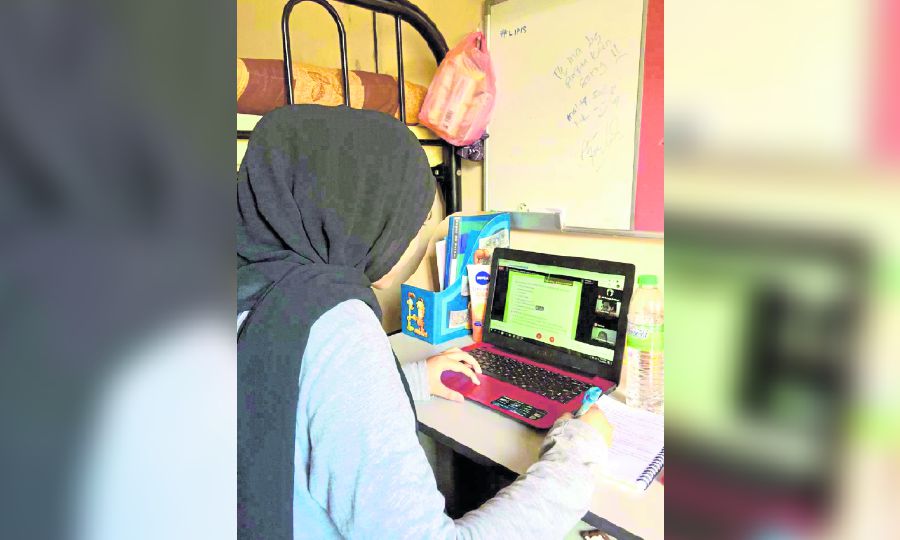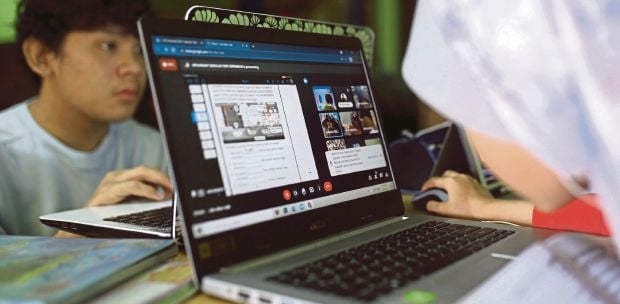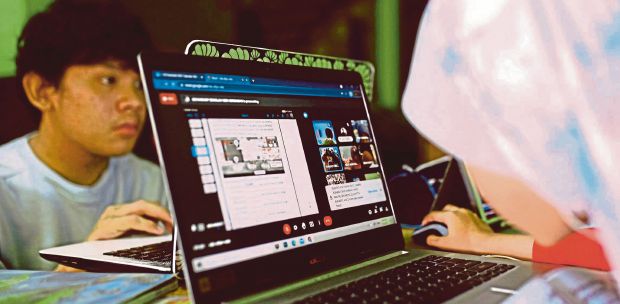CLASSES at universities have largely resumed after being disrupted by the Movement Control Order (MCO).
However, semester extensions had to be made to allow lecturers and students to adjust to the various aspects of online and remote teaching and learning.
On April 1, Universiti Teknologi Malaysia (UTM) resumed its classes for the second part of the 2019/2020 second semester, with a four-week extension approved without increasing the overall teaching and learning workload.
Its deputy vice-chancellor (Academic and International), Professor Zainuddin Abdul Manan, said the use of online and remote teaching and learning were used for lectures, assignments and project presentations, as well as practical work, viva examinations, service-learning and alternative assessments and final examinations.
"On student internship training, we have reached an understanding with a majority of companies to allow internship students to work from home, except for a few students who work in the companies' essential services.
"UTM has also allowed flexibilities for students to withdraw from courses, extend projects or defer their studies to later semesters with various fee discounts and without counting the semesters affected by the Covid-19 pandemic," he said.

After almost a month's break due to the MCO, which started on March 18, Universiti Teknologi Mara (UiTM) continued its classes online from the third week of last month with the semester slotted to end the third week of August.
Its Academic Development director, Professor Dr Nor Aziah Alias, said the university had minimised onsite and face-to-face assessments.
"These are decided and conducted in compliance with professional bodies and the Malaysian Qualification Accreditation requirements," she said, adding that assessment for courses that required face-to-face assessment was expected to resume next month.
She said some internships and final year projects would resume next month, while those that could proceed via online would continue to do so. She added that student movement into campus was being carefully planned to prevent massive movement and curb the risk of Covid-19 infection.
On April 20, INTI International University and Colleges also resumed its current semester by conducting online classes.
Its group registrar, Ganeshwari Thangarajah, said INTI's Teaching and Learning Department had worked with the deans of faculties to identify the subjects requiring the move from practical to online assessments.
She said it had identified the best alternative means of assessing students so that they meet the learning outcomes of each module.
"Exams are being curated through online platforms so that students can complete their semesters while taking away the need for students and invigilators to be placed in exam halls," she said.
Asia Pacific University of Technology and Innovation (APU) took the bold step to suspend face-to-face lectures, tutorials, presentations and classes in its campus from March 16, and instead, rolled out online classes via its Online Digital Learning platform on March 18
As such, APIIT Education Group chief operating officer Gurpardeep Singh said APU did not have to reschedule its classes.
"However, we have decided to reschedule the starting dates of the new semesters to provide time for the situation to normalise after the MCO and for most students to return to campus," he said.
For APU students who have to work on their final year projects, they have to do so remotely. They are in touch with their supervisors who guide them. Final year presentations are held via video conferencing, and thus far the method has proven to be effective.





